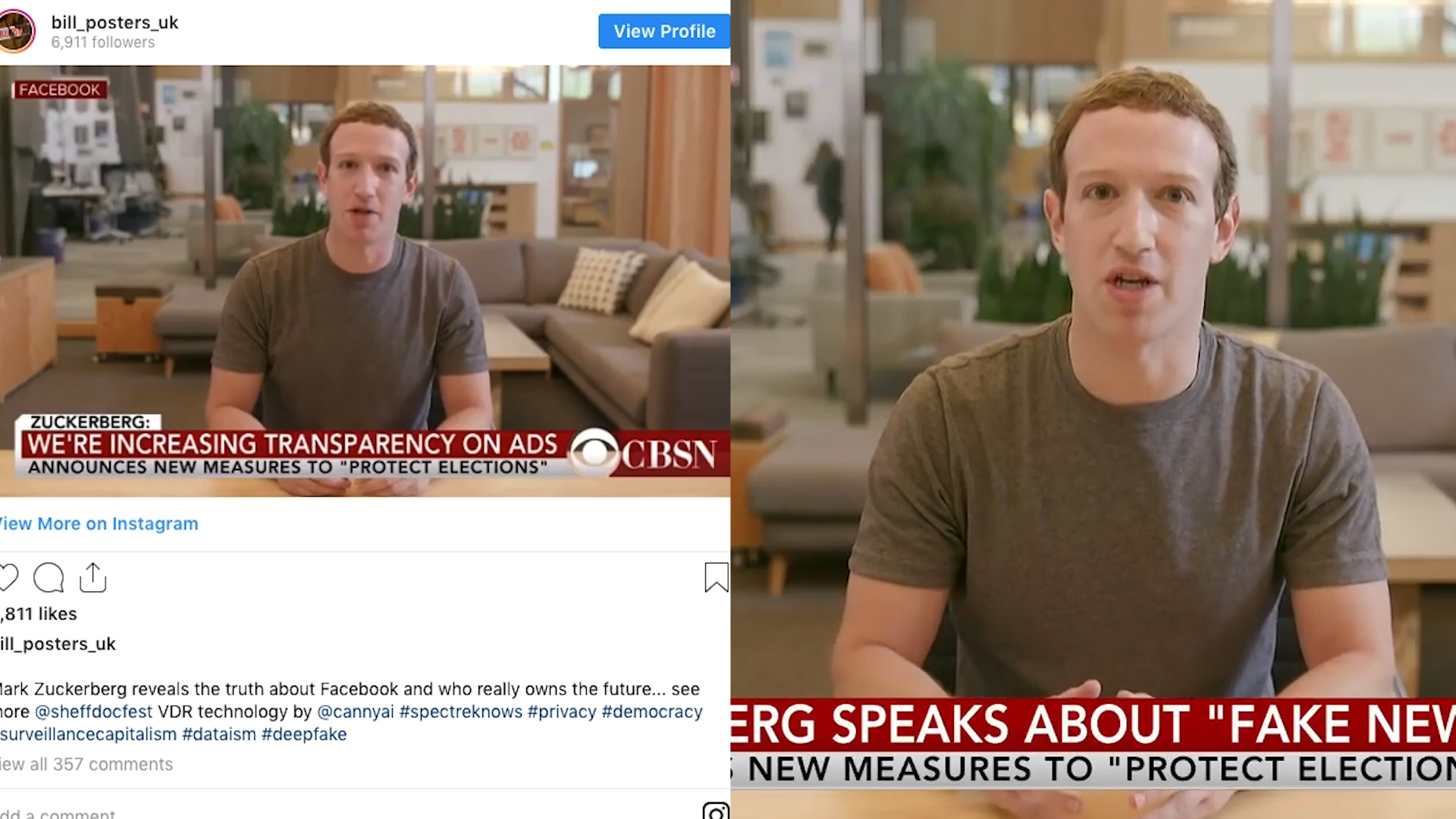British artists Bill Posters and David Howe teamed up with marketing agency Canny to post a deepfake video of Mark Zuckerberg on Instagram. The video, which was created using software that can create realistic deepfake videos, quickly went viral, garnering over two million views in just a few days.
While the video itself is decidedly humorous, the potential implications of its creation are not. Given that AI-enabled software is now able to create realistic deepfake videos with relative ease, it’s only a matter of time before this technology is used to distort political figures and other high-profile individuals. As such, it’s important that we start to discuss the ethical implications of such technology and figure out ways to ensure that it’s used responsibly.
What is a deepfake?
A deepfake is a type of fake video that uses artificial intelligence to create a realistic imitation of a person or thing. The technology is used to create fake videos that look like they were recorded by someone else. They are often used to make jokes or to show people how something would look if it were copied or edited.
How did the video get made?
In collaboration with marketing agency Canny, British artists Bill Posters and David Howe teamed up to post a deepfake video of Mark Zuckerberg on Instagram. The video was created by blending the face of Zuckerberg with footage of actor James Franco. The video quickly went viral, accumulating over 2 million views in just a few days.
What made this particular deepfake so popular was its uncanny accuracy. As is often the case with deepfakes, the video allows viewers to enter into a fake world where they can watch Zuckerberg being mocked and ridiculed. Although the original purpose of the video was to criticize Zuckerberg, many people found amusement and enjoyment in watching it.
This kind of manipulation is becoming more common as technology advances. With the ability to create realistic videos with just a few clicks, malicious actors are now able to create dangerous and damaging fake videos with little effort. As social media platforms continue to struggle to deal with this kind of content, it will be interesting to see how they respond to this new form of online marketing.
What did people think of the video?
The video received a mixed reaction from users on Instagram. Some found it hilarious, while others were less amused. However, many agreed that it was an interesting take on the infamous Facebook CEO. In the video, Zuckerberg is shown speaking in a robotic voice, discussing topics such as AI and data privacy.
Many people were drawn to the satirical nature of the video, with some calling it genius and others criticizing its inaccuracies. While some found it amusing, others were not so keen on watching a fake video of their favorite person being made to look robotic. However, despite the mixed reactions, many agreed that the video was an interesting take on Zuckerberg and his role in the world of marketing and technology.
What are the implications of the video?
The viral video of Facebook CEO Mark Zuckerberg deepfaked using a British artist’s Photoshop skills and a marketing agency has raised questions about the ethics of deepfakes and the potential for abuse.
Since the video went live on Instagram, it has been widely shared and dissected, with many users calling out Zuckerberg for his lack of awareness around the dangers of fake news. Some say that the video could be used to manipulate people, while others are concerned that it could be used to deepen divides in society.
Zuckerberg’s deepfake is only one example of how technology can be used to distort reality, and it’s not the first time that artists have teamed up with marketing agencies in order to create deepfake videos. In February, a deepfake of actor Daniel Kaluuya was created and shared online by marketing agency Canny, which quickly gained traction on social media.
While these videos are usually harmless fun, deepfakes could have more serious implications if they’re used to deceive or manipulate people. For example, if someone were to use a deepfake of Zuckerberg to promote a false political agenda, it could have serious consequences for democracy. Similarly, if someone were to use a deepfake of
Conclusion
The deepfake video of Facebook CEO Mark Zuckerberg has caused a lot of commotion on social media, with many people debating the ethics behind posting it. While some argue that the video is just a funny way to poke fun at Zuckerberg, others are concerned about its implications. In any case, the video is an interesting look into how technology can be used to manipulate images and deceive viewers. British artists Bill Posters and David Howe teamed up with marketing agency Canny to post the deepfake video, and they will be exhibiting their work at London’s Design Museum from Oct. 5-9. If you’re curious about how this technology works or what other kinds of videos we could see in the future fake-Zuckerberg style, be sure to check out their exhibit!
